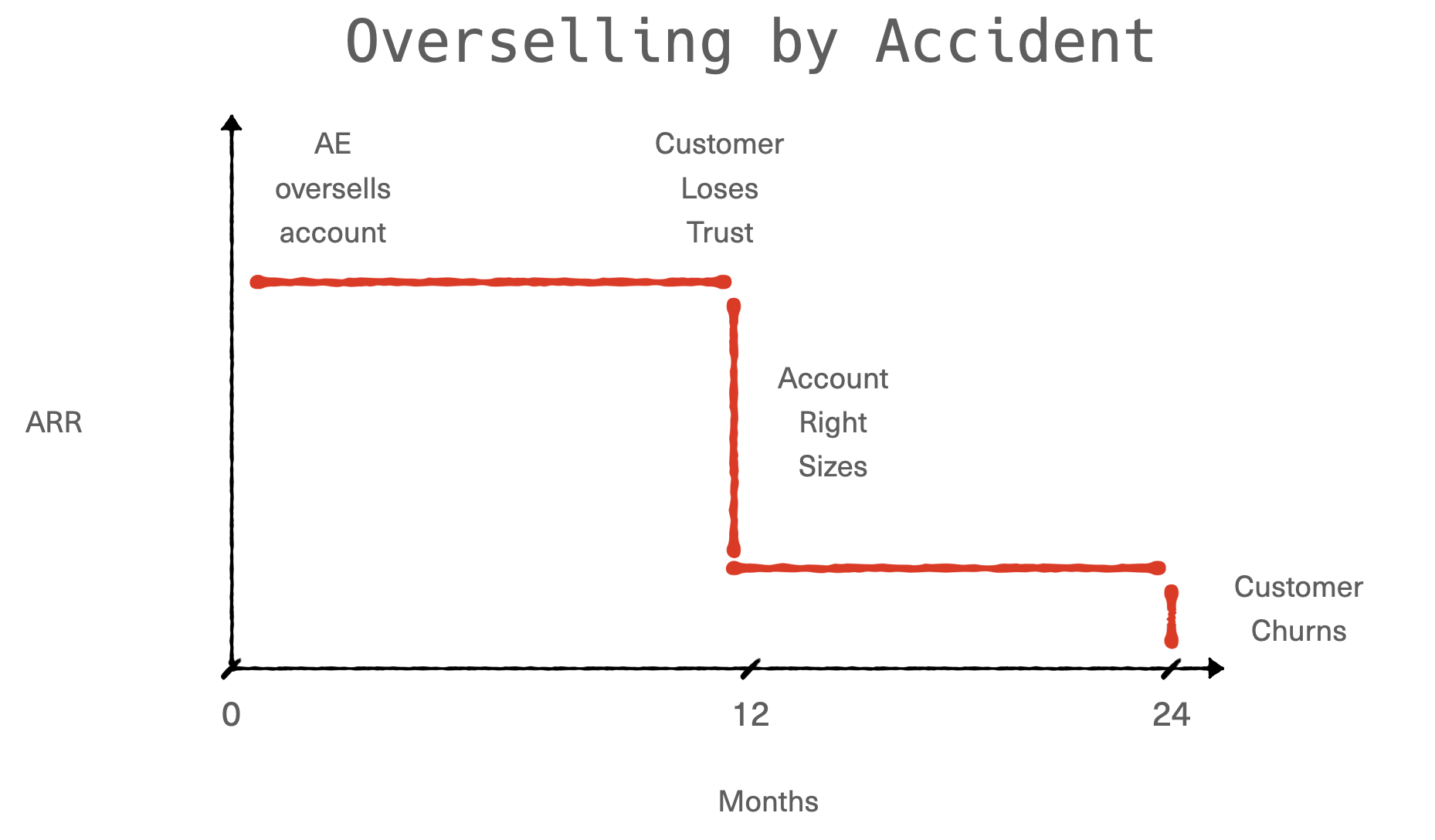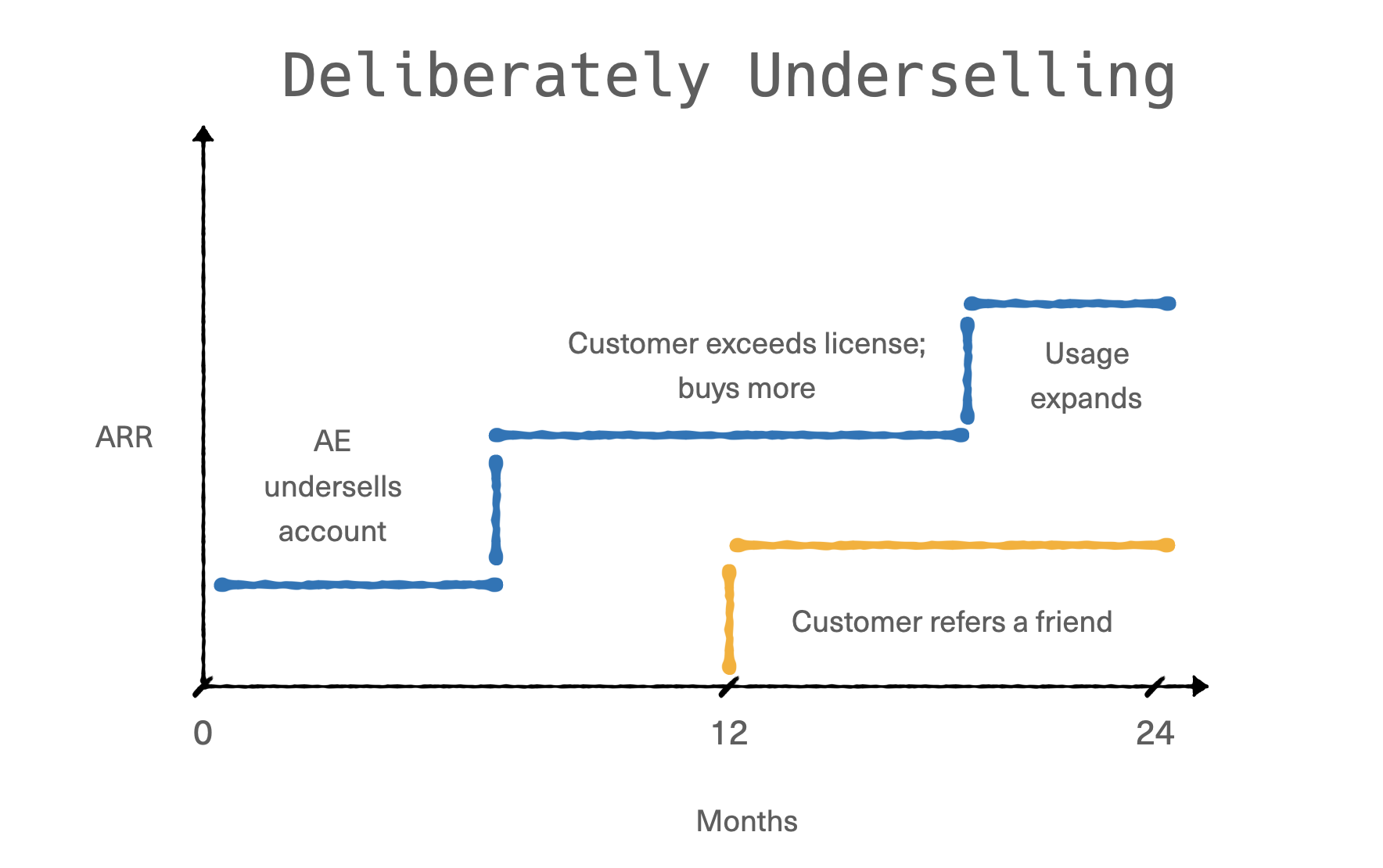2 minute read / Jul 11, 2022 /
Deliberately Underselling as Sales Strategy
Let me tell you a tale of two software sales processes.
 Take 1: An ambitious account executive engages a sales prospect and hustles to sell the customer a mega contract that consumes nearly the entirety of a budget. Big commission check, high fives, president’s club, feeling fine.
Take 1: An ambitious account executive engages a sales prospect and hustles to sell the customer a mega contract that consumes nearly the entirety of a budget. Big commission check, high fives, president’s club, feeling fine.
Nine months into the contract, the customer realizes they have over-provisioned. The buyer’s eyes were too big for their appetite. Time for a crash diet - a 60% reduction in seats. The customer loses confidence in the account executive, feels misaligned, and blushes under the challenging questions from the procurement team.
Either the internal champion pursues a competitor or management appoints another person to lead the next procurement cycle. In both cases, the vendor is out.
This is overselling by accident.

Take 2: The account executive deliberately undersizes the contract by a quarter or a third. Smaller commission check, but a faster sales cycle. The account executive tracks customer usage.
Within six months, the patient AE notes the customer has doubled their seat count. A breezy email follows: “How’s it going?” which leads to a nonchalant upsell: “You’re over your usage and we love that. We should probably increase your contract.”
The customer is in control. Other stakeholders compliment the champion on a great choice. She’s promoted. She refers you to a friend, who buys software from you and then tops up again.
In the first scenario, the sales team records terrific initial bookings. Later, lower NPS (net promoter score) and weakened NDR (net dollar retention) mar the company’s financials.
In the second scenario, the company enjoys faster sales cycles, greater NDR, and better customer retention, plus a referral.
These are dramatized scenarios with professional actors. But, as Lee Kirkpatrick, former Twilio CFO, shared during Office Hours, Twilio employed this strategy to achieve top quartile NDR while achieving strong ARR predictability with a usage-based pricing model. Which means it’s probably safe to try at home.
A key part of the formula: crafting the right account executive compensation structure to reward this strategy.
Deliberately undersizing contracts trades short-term bookings numbers for better unit economics, healthier customer relationships, and more expansion. AEs are more effective too. Who doesn’t prefer to sell to happy customers?